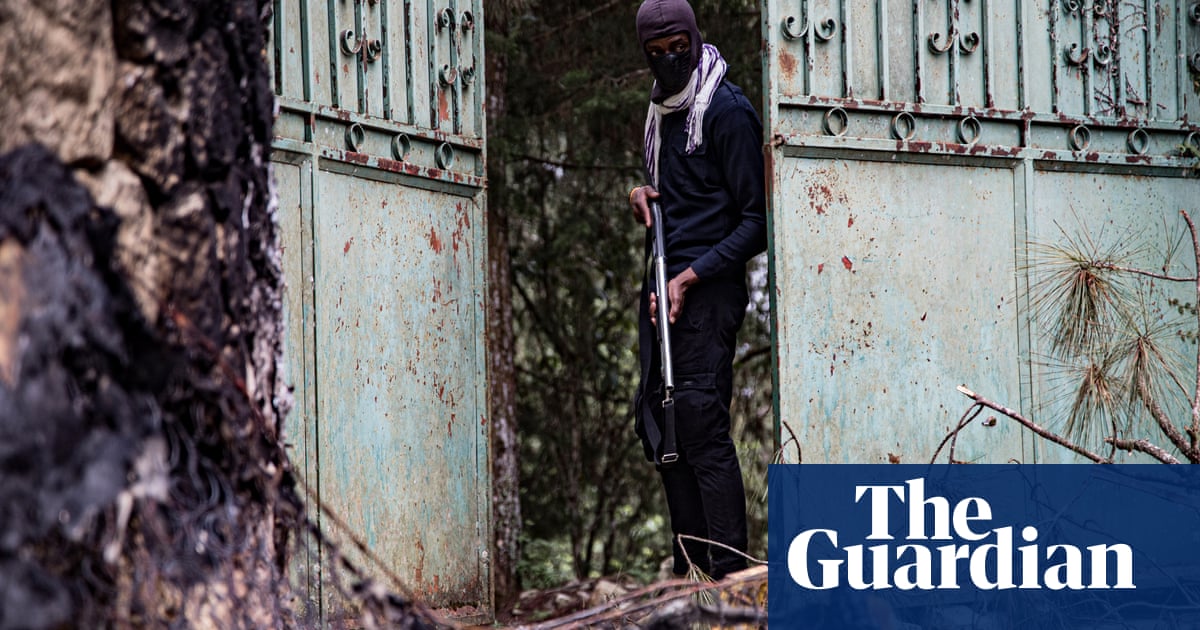More than half a million Haitians are facing the prospect of deportation from the US after theTrump administrationannounced that the Caribbean country’s citizens would no longer be afforded shelter under a government program created to protect the victims of major natural disasters or conflicts.
Haitihas been engulfed by a wave of deadly violence since the 2021 murder of its president, Jovenel Moïse. Heavily armed gangs have brought chaos to its capital, Port-au-Prince, since launching an insurrection that toppled the prime minister last year. On Tuesday, the US embassy in Haiti urged US citizens to abandon the violence-stricken Caribbean country. “Depart Haiti as soon as possible,” it wrote on X.
But less than 72 hours later, on Friday afternoon, the Department for Homeland Security – which is at the heart of Donald Trump’s hardline migration crackdown - said it believed it was “safe for Haitian citizens to return home” and announced their protections were being withdrawn.
“The environmental situation in Haiti has improved enough that it is safe for Haitian citizens to return home,” a DHS spokesperson claimed as it was announced that an estimated 521,000 Haitians would be stripped of their “temporary protected status” (TPS) on 2 September this year.
“This decision restores integrity in our immigration system and ensures that temporary protective status is actually temporary,” the spokesperson said.
The decision sparked an immediate outcry. Tessa Petit, the executive director of the Florida Immigrant Coalition and a Haitian immigrant,told Newsweek: “I’m still in shock, but I’m totally disgusted. This is a complete lie stating that the situation in Haiti has improved enough that it is safe for Haitian citizens to return home. This is a lie.”
The TPS program was created by US lawmakers in 1990 and was initially used to offer protection to those fleeingEl Salvador’s 12-year civil war during which more than 75,000 people were killed. Since then it has been used to offer shelter to citizens of countries such as Afghanistan, Somalia, Ukraine and Venezuela. Haitians were first offered TPS status after the 7.0 magnitude earthquake that devastated Port-au-Prince in 2010, claiming tens of thousands of lives.
It is unclear how the DHS reached its conclusion that Haiti was now “safe”. Experts saymore than 80% of the capital has been commandeered by violent, politically connected gangsin recent years, with the gang-controlled roads in and out of Port-au-Prince now considered too dangerous to travel. International carriers including American Airlines stopped flying into the city’s airport after several flights came under fire in late 2024.
The US state department describes Haiti as a “level four” destination which citizens are advised not to visit “due to kidnapping, crime, civil unrest, and limited health care”.
Its website warns: “Crimes involving firearms are common in Haiti. They include robbery, carjackings, sexual assault, and kidnappings for ransom. Kidnapping is widespread, and US citizens have been victims and have been hurt or killed … Mob killings and assaults by the public have increased, including targeting those suspected of committing crimes.”
The UK Foreign Office also warns against all travel to Haiti because of the “unpredictable” security situation and the threat of kidnapping and gang violence.
“Road travel is highly dangerous. Armed carjacking is common and criminal groups often use improvised road blocks to extort or kidnap motorists,” it says.
